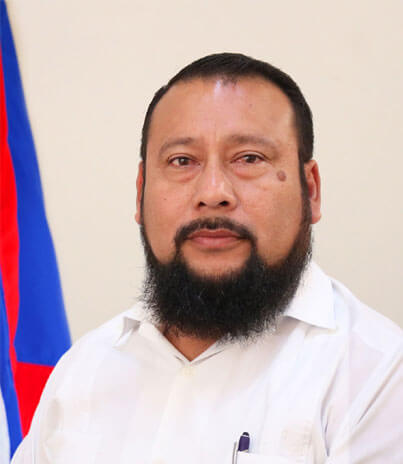BELIZE CITY, Tues. Nov. 17, 2020– More than thirty years ago, Belize’s cattle ranchers began supplying enough beef to meet the country’s needs, and after enabling self-sufficiency in the local meat market, the leaders of the industry began looking for markets abroad, in Mexico and Guatemala, so that they could expand their herds.
Exporting to other countries required that our herds were completely healthy, and so a certification program was initiated to test all our livestock for tuberculosis and brucellosis, two diseases of cattle that can infect human beings.
Belize also sought to secure formal markets for our livestock. The market in Mexico we sought has not materialized, but in 2009, Belize apparently got the agreement with Guatemala it wanted when the Guatemalan Congress ratified the Partial Scope Agreement between our countries that allows for Belize to formally export goods such as citrus, tilapia, corn, beans, poultry, and cattle to that country.
Despite Belize ensuring that its livestock was free of communicable diseases, the export of livestock to Mexico has not taken off, and the export to Guatemala, which was agreed on, has not been formalized.
Still, for years, exports of cattle trickled to Guatemala and the trade gradually grew until that country became the number one outlet for the excess livestock produced by Belize’s approximately 4,500 ranchers.
In Issue # 38 of the Belize Ag Report, dated November 1, 2017, Dr. Miguel Depaz of the Belize Agricultural Health Authority (BAHA), said that Belize had exported 4,872 heads, and that ranchers were getting an average of $2.50 per pound live weight, compared to .95 cents per pound that they were getting on the local market.
Hon. Orlando Habet, writing in the Belize Times of September 25, 2020, said that in 2019, the number of live animals exported was over 20,000, with an estimated wholesale value of more than $30 million.
The trade came to a screeching halt earlier this year after Guatemala closed its borders with Belize and its other neighbors because of the COVID-19 pandemic.
The closure of the border did not stop the movement of cattle for long, but Belize’s officialdom did, citing the informal nature of the trade.
In fact, Belize’s government described the trade as illegal. Barrow told the House of Representatives that the trade was stopped because there were no tax controls, foreign exchange controls, or money laundering controls that could be applied the way the trade was being conducted.
The livestock producers always wanted the trade to be formalized, because that meant a far more secure market, but the informal trade was much better than nothing at all.
The trade was a boon not only to big ranchers. It has been known for a long time that it is more profitable for small ranchers to sell off their stock as yearlings; that market doesn’t really exist in Belize, but they did a brisk trade with our neighbors in Guatemala.
Cattle ranchers also note that the trade on this side was entirely above board, as their cattle were all certified, and the agent transacting the business in Belize, Joe Friesen, got a movement permit from the Belize Livestock Producers Association (BLPA) for all cattle being sold out of the country.
In 2009, Belize had an estimated 80,000 heads of cattle. Habet said the BLPA estimated that in 2020 our national herd had more than doubled, to 180,000 heads.
The Belize Press Office reported on August 11, 2020, that the Ministry of Food and Agriculture had announced a first formal exportation of cattle to Guatemala on August 10, a total of 27 animals. This “formal” trade did not amount to much after three months, hence the livestock producers returning to the “informal” route.
Explaining the decision by the new PUP government to encourage the informal trade at this time, the Minister of Agriculture, Food Security and Enterprise, Hon. Jose Mai, said that many ranchers were facing bankruptcy, even though they had thousands of cattle ready for the market.
Those cattle had no place to go, until the change of government last week, and the trucks loaded with prime Belizean beef started rolling toward the western border again.
It’s far from a perfect solution; that won’t be attained until the trade is feasibly formalized, but if a poll were taken to find out how the ranchers feel about it, it would be hard to find any of them who isn’t glad about the Guatemalan market opening up again to take their excess beef.

